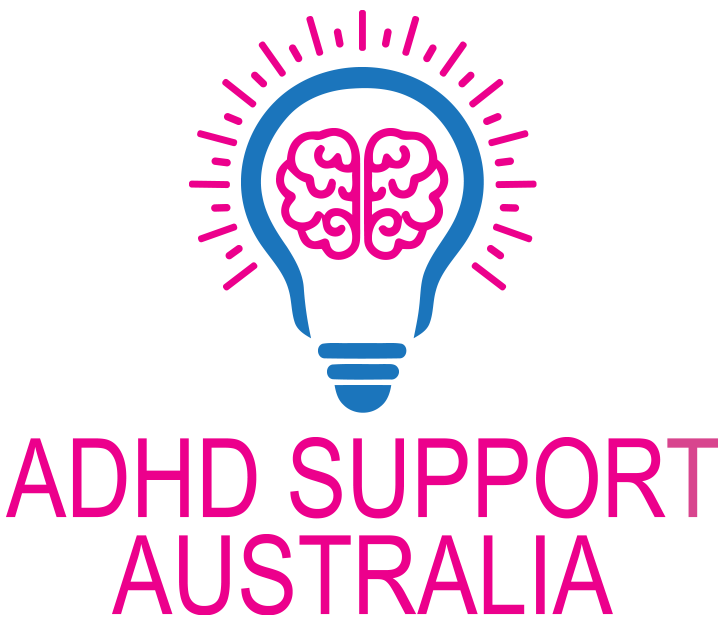
ADHD and Dental Care
ADHD or Attention Deficit/Hyperactivity Disorder is a chronic condition that makes it difficult for a person to pay attention and control impulsive behaviors. When it comes to going to the dentist, patients with ADHD have a tendency to feel anxious or stressed which can make it hard for them to focus and sit still during a dental appointment.
With around 9.2% of children ages 2-17 being diagnosed with ADHD, it’s important for caregivers and dental professionals to help patients with ADHD develop healthy oral hygiene habits and feel comfortable at the dentist. Our dental experts, Dr. Greg Grillo, and Dr. Andrew Jordan have spent years working with patients and caregivers educating them on the importance of dental care and providing them with tips for dental visits.
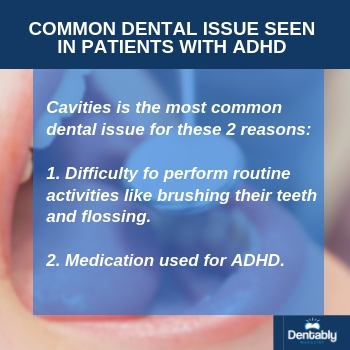
The Most Common Dental Issue Seen in Patients with ADHD
The most common dental issue that many dentists see in patients with ADHD are cavities. This is because of a few different reasons.
First, it can sometimes be difficult for children with ADHD to perform routine activities like brushing their teeth or flossing. These poor oral hygiene practices put individuals with ADHD at risk for cavities. In a study published by the National Center for Biotechnology Information, only 48% of children ADHD brush their teeth every morning and only 48% brush their teeth every evening. This low percentage proves why it’s important to instill a dental care routine from a very young age.
The second reason children with ADHD are at risk for cavities is because of medication. Medications used to manage ADHD can lead to changes in one’s diet and appetite which can increase a child’s risk for cavities. Side effects of an ADHD medication such as dry mouth also make individuals prone to cavities.
Another study showed that children with ADHD had nearly 12 times the odds of having a high number of diseased, missing, and filled teeth.
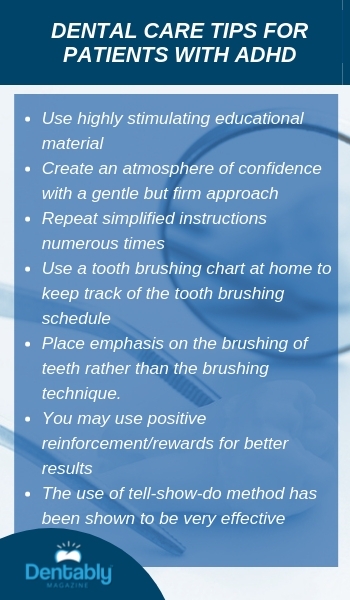
Dental Care Tips For Patients With ADHD
Developing an oral hygiene routine is important to an individual’s overall health. For those with ADHD, this may be more difficult but with repetition and practice, it is possible.
Here are some tips for dental care for parents with children with ADHD:
- Use highly stimulating educational material
- Create an atmosphere of confidence with a gentle but firm approach
- Repeat simplified instructions numerous times
- Use a tooth brushing chart at home to keep track of the tooth brushing schedule
- Place emphasis on the brushing of teeth rather than the brushing technique.
- You may use positive reinforcement/rewards for better results
- The use of tell-show-do method has been shown to be very effective
The most important thing to remember is that instilling an oral hygiene routine may take time and be trial and error. Be patient and try a combination of techniques until you find what works best for your child.
ADHD – Dental Care Tips for Dentists
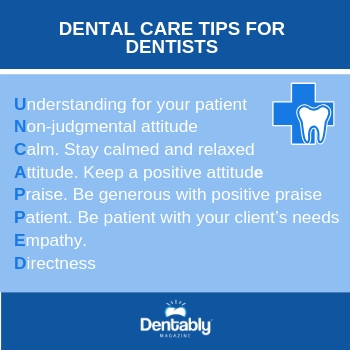
Some dentists may be new to treating patients with additional needs. Treating a patient with ADHD can be simple and the acronym UNCAPPED may help parents and dentists have a child’s appointment run more smoothly.
- Understanding for your patient
- Non-judgmental attitude
- Calm. Stay calmed and relaxed
- Attitude. Keep a positive attitude
- Praise. Be generous with positive praise
- Patient. Be patient with your client’s needs
- Empathy
- Directness
Finding the right dentist
Along with an effective dental routine, it’s important that your child visits the dentist regularly. Finding the right dentist plays a large part in your child’s oral health so it’s important that as you begin searching you don’t give up until you’ve found someone who you believe is a good fit.
When searching for the right dentist, be sure to ask questions as they will help guide your decisions. Here are some questions to get you started:
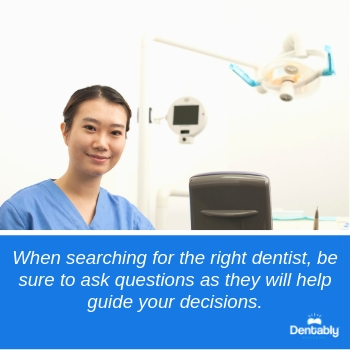
1. Are you comfortable working with a patient who has ADHD?
The dentist you choose should be comfortable working with patients who have additional needs. If the patient is a child, you should begin searching for pediatric dentists. They have 2-3 years of extra schooling and can better accommodate your child’s visit to their needs.
2. What experience do you have working with patients with ADHD?
When speaking with potential dentists, listen to specific examples of when they worked with patients with ADHD. Dentists with previous experience will be more comfortable overall in ensuring that your child’s visit runs smoothly.
3. Can any special accommodations be made?
A good dentist should be able to answer yes to this question. It should be their goal to make your child feel as comfortable as possible. Some accommodations that you may want to request are if you can stay with them throughout their appointment or if waiting room times can be reduced. These small adjustments can make a huge difference in your child’s overall dental experience.
Remember, as a caretaker you are in charge of a dental visit so ask any questions that may come to your mind. The more information you can gather, the better the dental appointment will go.
You can start looking for a dentist by contacting local dental clinics in your area. The American Dental Association also has a directory for you to search for dentists by city, state, and specialty.
Dental Sedation
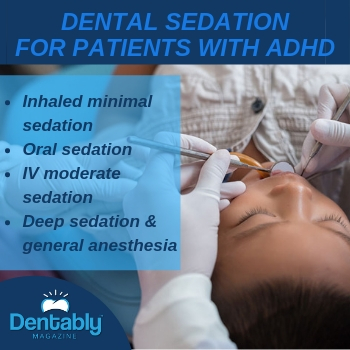
Patients with additional needs may benefit from dental sedation during their appointment. Sedation is sometimes necessary if the patient needs dental work done and they do not want to cooperate with the dentist.
There are a few types of sedation that your dentist may offer. They Include:
- Inhaled minimal sedation: The patient breathes in nitrous oxide combined with oxygen to help them relax. Your dentist will be in complete control of the medication with this method.
- Oral sedation: This can range from minimal to moderate. Oral sedation is most commonly associated with sedation dentistry. The patient is given a pill that makes them drowsy; a more moderate dose may make the patient fall asleep.
- IV moderate sedation: A sedation drug is given through the patient’s vein and works more quickly. Your dentist will be able to continually adjust the sedation levels.
- Deep sedation & general anesthesia: Medication is given that will make the patient nearly or totally unconscious. While under general anesthesia you cannot easily be awakened until the effects of the medication wear off or are reversed.
Preparing for the Dental Appointment
After you’ve chosen a dentist and scheduled an appointment for your child or loved one, it will be important to prepare them for their dental visit. Preparing gives them an idea of what they can expect during their appointment. There are a number of things you can do, so find what works best for you and your child.
-
- Help visualize what happens at the dentist
Using visuals is a great way to see what happens at the dentist. This can be done with storybooks or videos and gives the patient a way to make a connection between the visuals and their dental appointment.
-
- Visit the dentist early
Visiting the dentist prior to the actual appointment can be beneficial because it allows the patient to familiarize themselves with the environment such as seeing the lights and hearing the sounds. You and your child can meet the office and staff members and go over any other accommodations that need to be made.
Going to the dentist should be a good experience, so be sure to keep conversations about the dentist positive and informative.
Conclusion
Dental care and regular dental visits are essential to one’s overall health and well being. Certain behavioral issues may make it difficult for someone with ADHD to develop healthy oral hygiene habits, and medications put those with ADHD at high risk for cavities. As a caretaker, never give up on your child or loved one’s dental health and do your best to instill in them healthy dental hygiene practices, including regular dental check-ups.
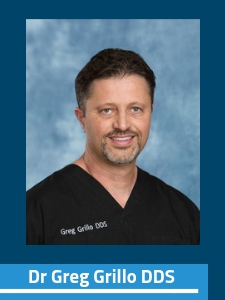
“The key is to find a strategy that works for each patient. With safe, monitored techniques, there’s a sedation solution for every situation, and that can make a huge difference in the current and future health of an individual.”
